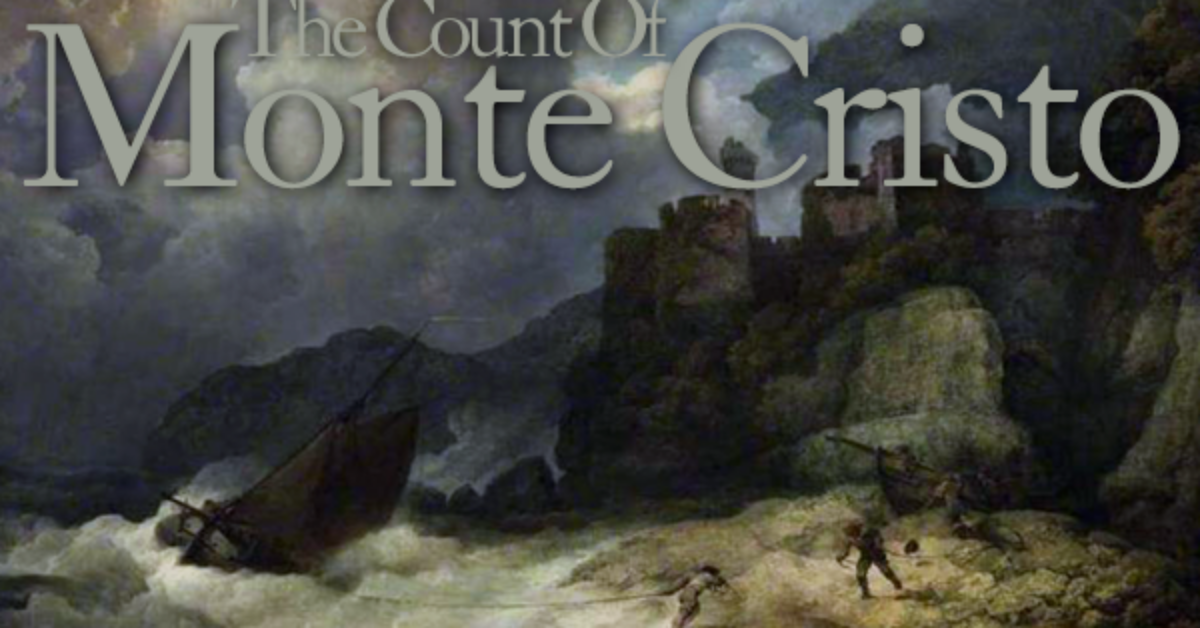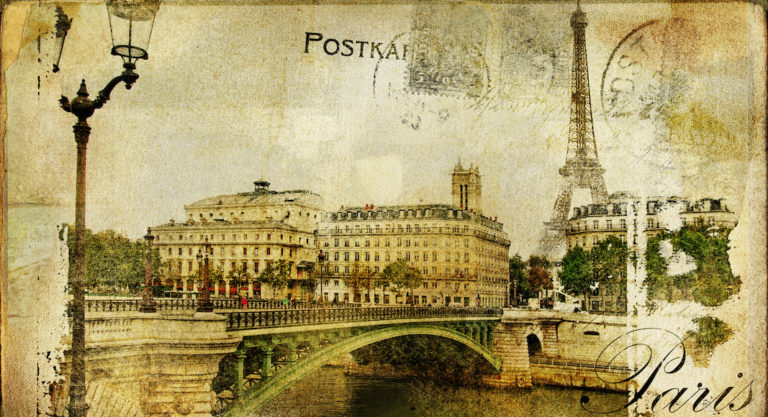We resume our story almost a decade after we last saw Edmond Dantès, former prisoner and enemy of the state turned impossibly wealthy benefactor and righter of wrongs, leaving the port of Marseille. We too have left France and find ourselves in Italy in the Year Of Our Lord, 1838. We are briefly in the company of the Vicomte de Morcerf—that’d be the son of Fernand and Mercédès, unfortunately, although one wonders…—and the Baron d’Epinay, young Parisian aristocrats preparing for the carnival in Rome.
Their accommodations at the Hôtel de Londres not yet being ready, the two split up—Albert the Vicomte to Naples and Franz the Baron to Elba, where he does a bit of island-hopping.
…yes, I imagine so, but for the first time in these summaries, I’ve read as far into the book as you, dear corner-cutting reader, have read in this series.
From Florence to Elba, from Elba to—yeah, here we are: the island of Monte Cristo. Is Franz’s captain and guide actually Dantès, working some sinister plot on this friend of Mercédès’ son? This sailor with such a fine knowledge of how to approach Monte Cristo in encroaching and then total darkness, with his stories of the pirates and smugglers that work in these Mediterranean waters? Probably not, no. …but maybe.
The ship approaches, spotting a signal fire burning. Gaetano, he of the smuggling stories, jumps ship and swims to shore, making contact with the smugglers and their bandit friends. Franz doesn’t particularly trust smugglers or bandits, not with a thousand francs on his person, but then, his guides seem to be smugglers themselves, and they’ve left his billfold unmolested when they easily could have thunked him on the head with an oar and send him sinking to the bottom of the sea.
“Good Lord!” says Gaetano. “It’s not they’re fault if they’re bandits, it’s the fault of the authorities.”
They’re given clearance to land, and after some tense talk with guns cocked, Franz and his men prepare to make camp; but it appears the master of the island, who Gaetano hears lives in a hidden palace straight from Scheherazade’s tales and is wealthy beyond measure, wishes to dine with the young Frenchman, who he has heard is, well, French.
Ah. Aha. Ahhhh. Okay, that must be Dantès, no?
Franz is led, blindfolded, to this hidden lair, and sure enough, it is every bit as opulent as he was told. The man’s name is not Dantès but Sinbad the Sailor, which amounts to same thing. For his part, Franz calls himself Aladdin.
Sinbad’s hideout is far more decked out than Dantès’ mostly empty cavern, the whole room is “hung with crimson Turkish hangings, brocaded with gold flowers. In a recess there was a sort of divan, and above it a display of Arab swords with vermeil sheaths and hilts shining with precious stones. From the ceiling dangled a lamp in Venetian glass, delightful in shape and color, and [Franz’s] feet sank up to the ankles in the Turkish rug underneath them.” They are attended to by a “Nubian” named Ali that Sinbad had saved from having his tongue cut out, his hand cut off, and his head separated from its natural pedestal. Well, the last two, at least—Sinbad says that he had always wanted a mute servant, so he waited until after his tongue was gone to buy the freedom of the man.
Of course, a mute servant keeps secrets better than most, including, say, the location of a hidden lair on a barren, granite island. Many have tried to enter, few have won.
They dine luxuriously, and Sinbad regales Franz with tales of his glorious, free lifestyle.
“I lead the happiest life of any man I know—the life of a pasha! I am the lord of creation: if I am enjoying myself in a place, I stay there; if I am bored, I leave. I am as free as a bird and, like a bird, I have wings. I have only to make a sign for the people around me to obey me. From time to time, I amuse myself in teasing justice by snatching a wanted bandit away from it, or a criminal with the police on his trail. Then I have my own justice, high and low, which suspends no sentences and hears no appeals, which merely condemns or pardons, and concerns nobody. Oh, if you could have tasted my life, you would want no other, you would never return to the world, unless you had some great project to carry out.”
Franz, the little bugger, suggests an act of revenge as a for-instance of a project. Sinbad wonders why his mind went there first: “Because you look to me like a man who has been persecuted by society and has a terrible account to settle with it.”
Dinner is finished and dessert is served, a strange green treat that Franz has never seen and which Sinbad says produces dreams “so sweet, so intoxicating, so voluptuous that [men] would sell themselves, body and soul, to the person who had procured it for them, obey his orders like those of God and strike whatever victim he directed at the furthest end of the earth, dying under torture without a murmur, simply because they believed that the death they would suffer was merely a transition to that life of delights of which holy grass had given them a foretaste.”
So, pot, right? Really, really good pot?
Nope: hashish.
“Nature wrestles with this divine substance, because our nature is not made for joy but clings to pain. Nature must be defeated in this struggle, reality must follow dreams; and then the dream will rule, will become the master, the dream will become life and life become a dream.”
Good god: our hero has become a hippie. He probably believes in universal healthcare, which is truly strange for a tremendously wealthy man. That must be some potent shit.
It is indeed some potent shit. Franz goes absolutely tits-up on the substance as Sinbad tells him that, once he’s finished his eventual business in Paris—he’s never been, by the way—he will go to the East to die. That’s around the time Franz starts, as they say in France, tripping des couilles, in a Hunter Thompson montage of, if I’m reading this right, statues filling him with lust and possibly molesting him. It is impossible in this day and age to not think there was some funny business going on with Dantès and Ali, but we shall give our hero, his mute servant, and M. Dumas the benefit of the doubt.
Franz wakes up in a small cave that opens onto the shore itself with no apparent passageway to his previous, opulent lodgings. He and his smugglers try to find such to no avail.
Back in Rome, which circumscribes a micronation where no one is to be given the benefit of the doubt in this day and age, Franz and Albert are reunited in Signor Pastrini’s hôtel, where they have three rooms and a commanding view of the street at their disposal. It is late in the game, so these rooms were all Pastrini could manage—the rest of the floor, it seems, is otherwise occupied.
The remainder of the floor was rented to a very rich gentleman…
GO ON.
…believed to be a Sicilian or a Maltese: the hotelier could not say precisely to which of the two nations the traveler belonged.
…IF EITHER.
He was called the Count of Monte Cristo.
Of course.
There! That’s the name of the this very book we’re reading! Or that I’m reading to you, chewed up into easy-to-digest bits like a mother to her baby birds. Even you would recognize the name, yes? Monte Cristo, The Count Of!
So then why do Albert and, in particular, Franz, take this information in dull, oblivious stride, setting straight to supper and complaints about the lack of carriages for hire at the height of carnival?
Pastrini does find a carriage for them—such as it is:
“Excellency!” the guide cried, seeing Franz looking out of the window. “Should we bring the coach to the palace door?
Even though Franz was accustomed to Italian exaggeration, his first impulse was to look around; but the words were indeed addressed to him. He, France, was the Excellency; the hackney cab was the coach; and the palace was the Hôtel de Londres. In that single phrase was contained the whole genius of a nation that knows how to turn a compliment better than any other.
It should be said, since it would be natural for you to wonder at this point, that Albert, le Vicomte de Morcerf, seems to be a bit of an entitled brat, while Franz, Baron d’Epinay, seems quite game for an adventure, for at least playing at hardship. Albert’s main pastime seems to be arguing over the number of cabs available to them for the last three days of carnival, no matter how many times Pastrini says it’s quite impossible.
So, then, when the Signor d’Hôtel tells the boys that their planned route to the Colosseum is beset by a danger known as the famous bandit Luigi Vampa, he’s inclined to disbelieve the Italian, while Franz is quite credulous. The Vicomte thinks that they should arm up, be seized by the great Vampa, seize him right back, and march him to the Pope himself, who will gladly provide them with the horses and carriage he so covets.
Makes a person want to throttle Albert by his weak, blue-blooded neck and squeeze, until a person thinks, Ah, but that is just the sort of ideal situation into which a writer might reintroduce the hero of our story, who will just so happen to be in the vicinity during Vampa’s inevitable attack!
Well, maybe. We’ll see.
What follows is Pastrini’s telling of Vampa’s life story, which we can assume you wish to have at no cost to yourselves, like the narrative bandits you are. But I tell you: you will not have it. Like a sly traveler, I will give you the cash I have on-hand while concealing the richer jewels from sight, and you, being poor bandits, will be none the wiser. Except that I just told you about the gems.
Look: Luigi Vampa grew up a poor orphan outside of Rome, a wily young shepherd who bootstrapped his way to reading and writing, carving and marksmanship, and had a constant companion in a girl a year his junior, the shepherdess of the local count, likewise poor and orphaned (Teresa, that is, not the count). They grew up together, and when they were teenagers and still had not declared their love for one another, they assisted a captain of the local banditry in escaping the carabinière, who had previously abducted and raped one of his lieutenants’ betrothed, by accident at first and then on principle. The captain, Cucumetto, clearly takes a shining to Teresa, who is, of course, beautiful, or she would not have been cast for this book.
At nearly the same time, the shepherdess and her de facto boyfriend are allowed to attend the count’s carnival festivities in their comparatively dowdy finery. Engaged in quadrilles with the count’s daughter and her two landed companions, Vampa realizes he might lose her to the allure of the aristocracy, which she could ascend to by dint of her landed beauty. So he burns down a wing of the villa, saves the lady viscountess, and brings Teresa the dress she so coveted at carnival.
Okay, stop skimming through the text. I can feel your eyes skipping words in search of salient details, and this is going to be key.
Listen:
While Teresa is fitting herself in the stolen dress, Luigi helps a lost traveler find his way through this confusing part of the local wood, accompanying the man farther than he should, and receiving for his troubles two sequins—which are apparently currency, in this sense—for which he gives the rider his hand-carved knife.
The rider gives his name as Sinbad the Sailor. Are you thinking what I’m thinking? Of course you are: why would a sailor be on a horse? Mysteries abound!
We return to Franz, here, where Dumas notes that the young Baron is hit by a flood of memories, just as he had been when the Count of Monte Cristo had been mentioned earlier. We might be inclined to wonder why Dumas didn’t mention Franz’s earlier reaction, but as we’ve wandered past the border of that particular chapter, it’s safe to assume that Dumas received a number of angry letters from readers of the previous episode of the serial wondering why the hell Franz wouldn’t start at least a little bit at the mention of Monte Cristo.
The Count of Monte Cristo? We might imagine him asking Pastrini. Monte Cristo—and I know this for a fact, although I was absolutely tripping balls at the time, is almost entirely granite, wholly uninhabitable, and… oh wait, you know what? I know a guy who literally has an apartment there. But I knew him as “Sinbad the Sailor,” which won’t come up again until the next chapter, when we hear about Luigi Vampa, so I guess just leave it until then.
Please take notice of the lack of extreme indentation in the preceding paragraph: it is not, as your weak eyes might have thought, a quote from the actual book. Not that you’d know!
Well, and of course, while he’s helping Sinbad, Teresa has been adbucted by Cucumetto, who has been perving out and keeping an eye on the shepherdess from afar. Vampa snipes him at a considerable distance, right through the heart, and dresses himself in Cucumetto’s clothing, which you have to assume had at least one bullet hole and a lot of blood in it, but fair dos. Luigi marches with Teresa through the forest, finds Cucumetto’s men, and is elected their new captain by acclaim.
Now, knowing all that, Franz wonders if Albert still wants to take the scenic route to the Colosseum, upon which road they are bound to be captured by Vampa. Albert, perhaps sensing unconsciously that his Uncle Monte needs to reenter the story proper—and not knowing he could just walk down the hallway and knock on the door of his neighbor—says yes.
But then they pass through the Colosseo unmolested, although Franz happens across a moonlit conversation between a man who is easily Luigi Vampa and another man who sure sounds like Sinbad the Sailor discussing the escape or release of a man named Peppino.
The boys attend the opera, where Franz introduces Albert to the mysterious and charming Countess G—. The poor viscount has had no romantic luck during his sojourns in Italy, despite his rather attractive pedigree, which he assumed would assure him of many lustful exploits:
Alas, it had not been so. The charming Genovese, Florentine, and Neapolitan countesses had chosen to stick, not with their husbands, but with their lovers, and Albert had come to the painful conclusion that Italian women at least have this over their French sisters—that they are faithful in their infidelity.
Or maybe racism turns them off, vicomte.
Anyway, the countess and Albert seem to hit it off, although Franz is rather focusing his attention more on the couple in the box opposite theirs than the couple in his own. A dashingly beautiful Greek woman is seated with a mysterious man who—hard to make out but… yes: there, now standing in the light, that is surely the Count of Monte Cristo! The Countess G. is convinced the man is a vampire after Lord Byron’s stylings and begs Franz to escort her home. He doesn’t stay the night, even though the countess’s pretense for being brought home was that she had phantom guests—the 19th century version of “Netflix and chill”—as there is nothing going on between Franz and the countess, even though she is beautiful and possessed of a great wit and charm, as all women in books from the 1800s are.
Something will probably happen between them later, pr






